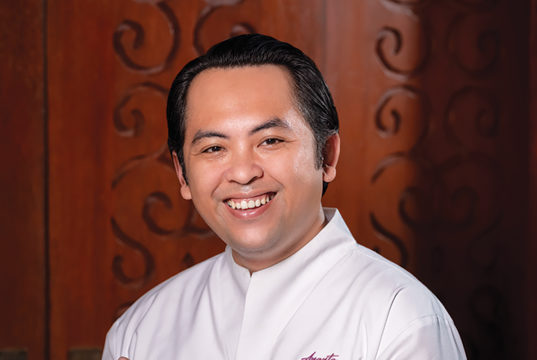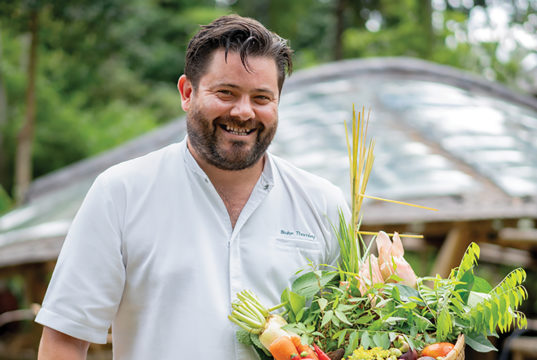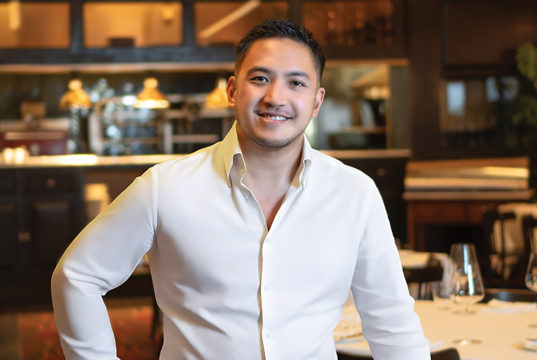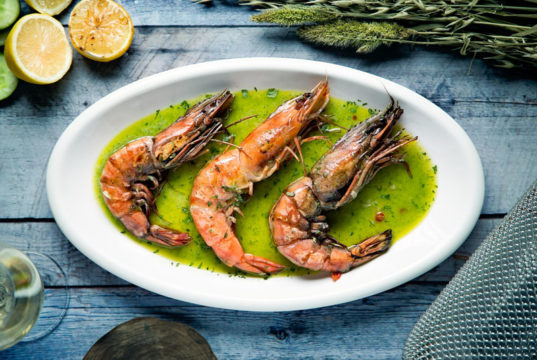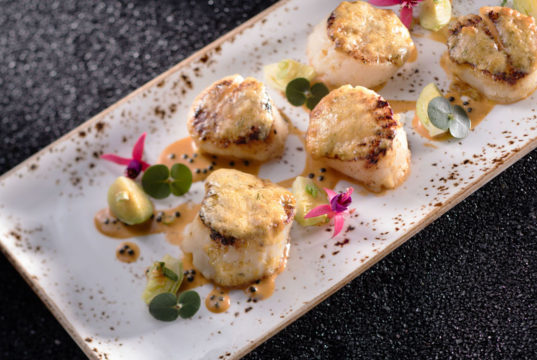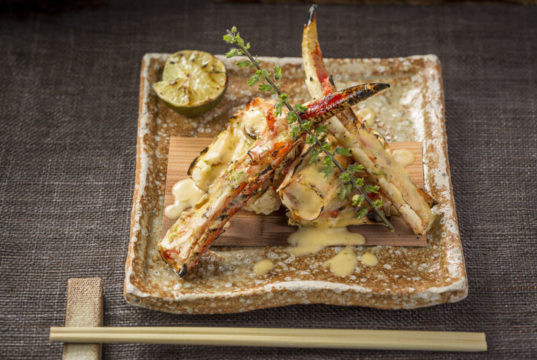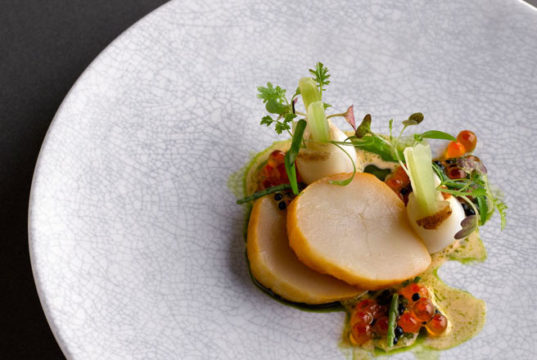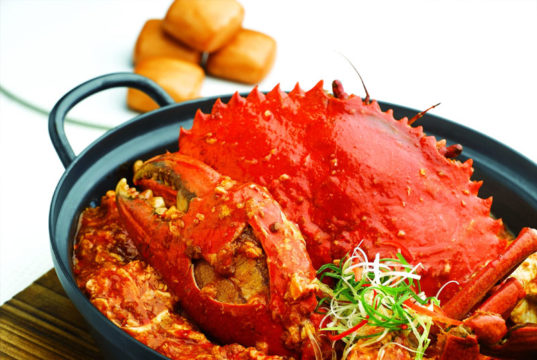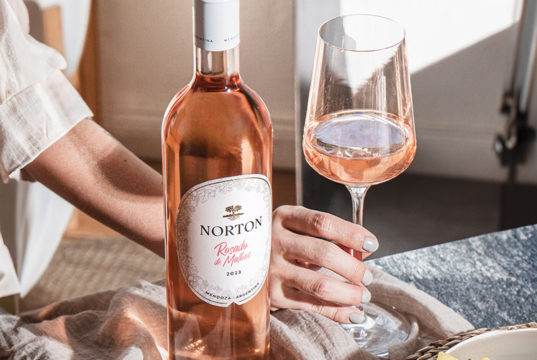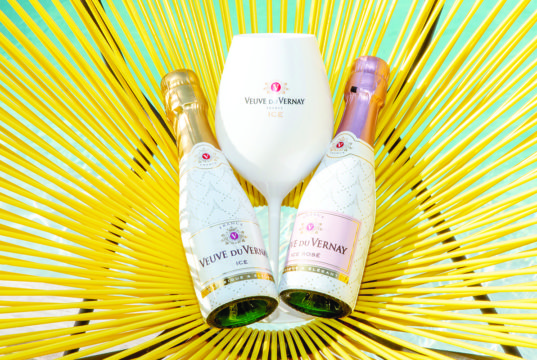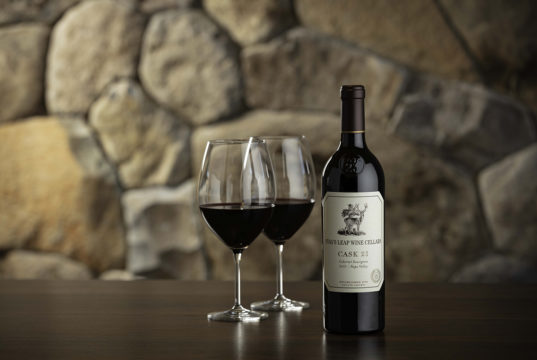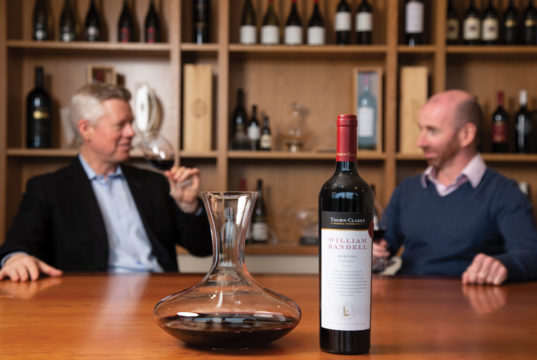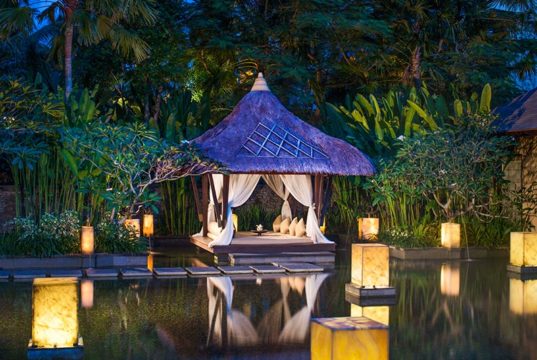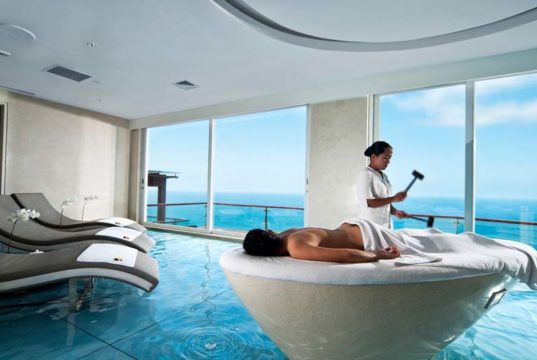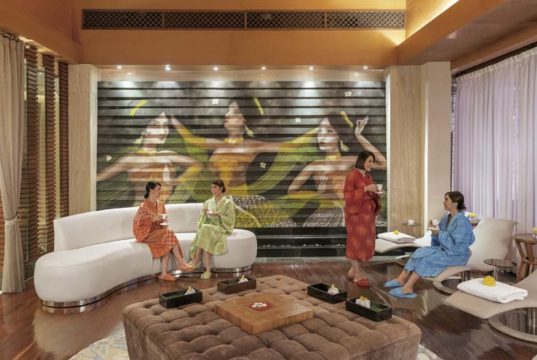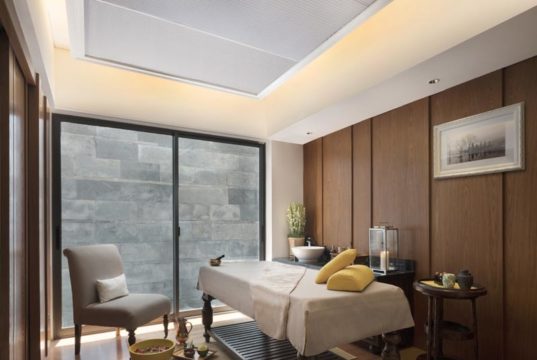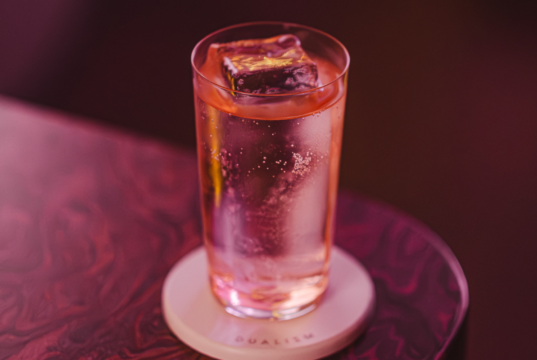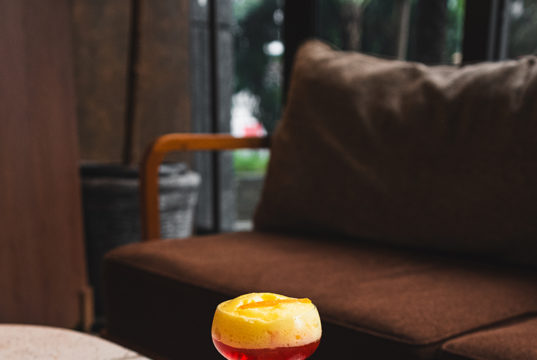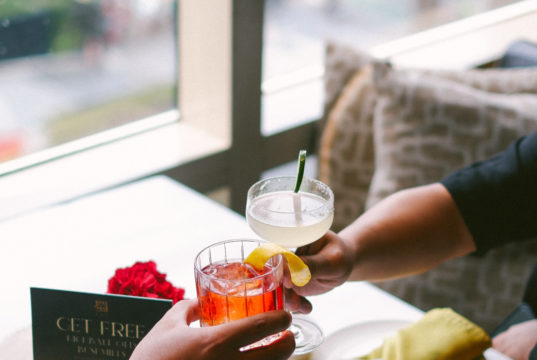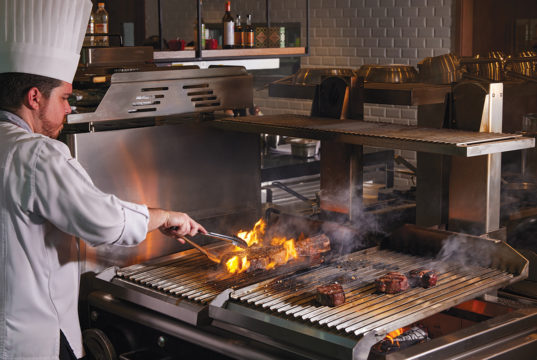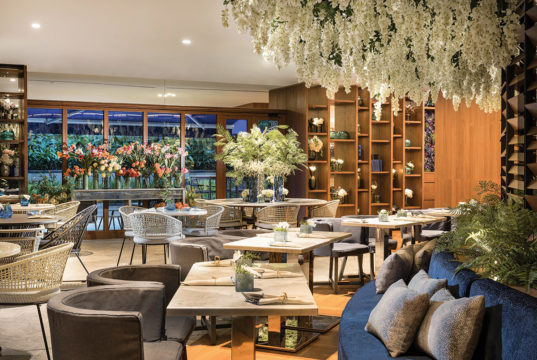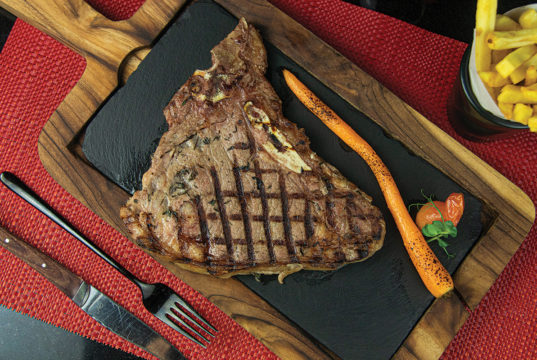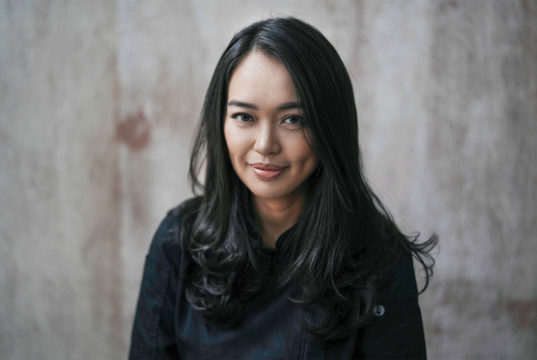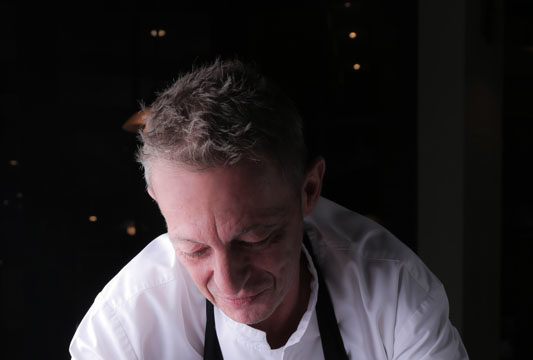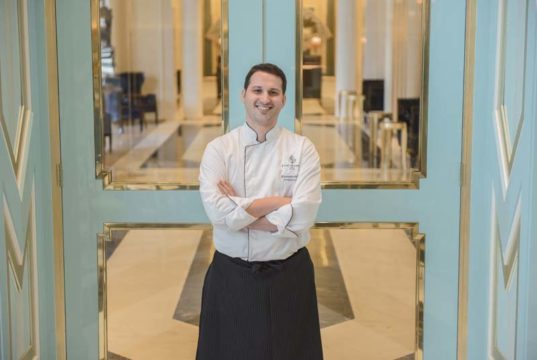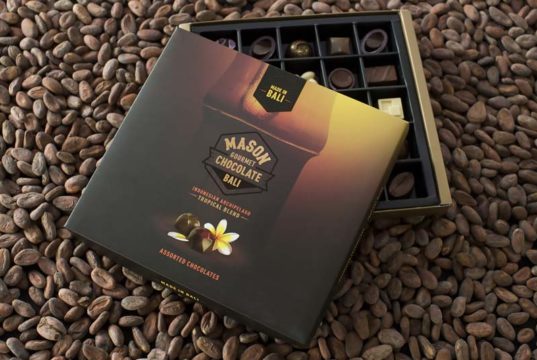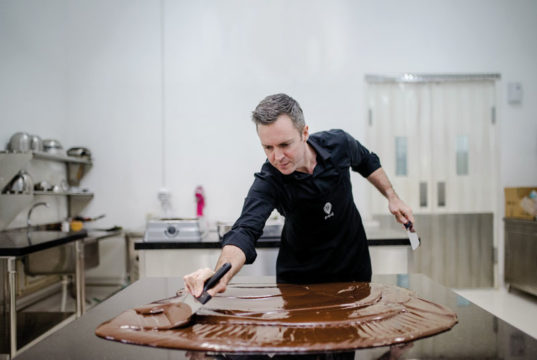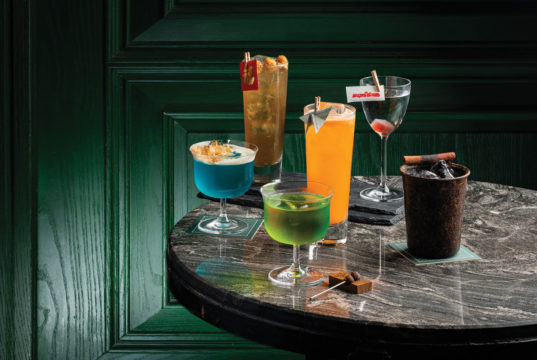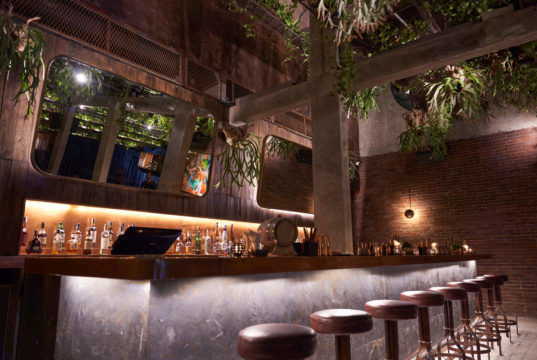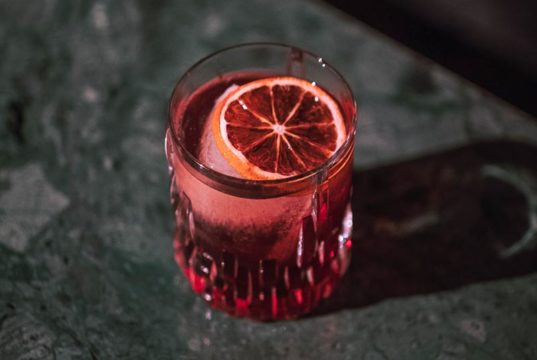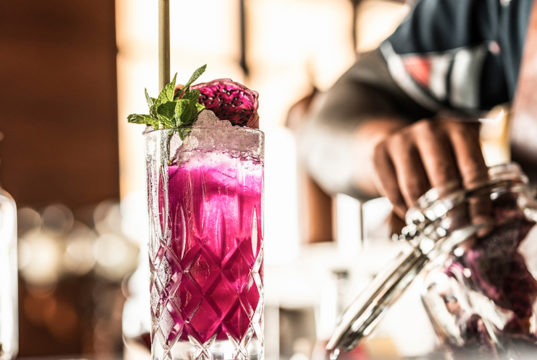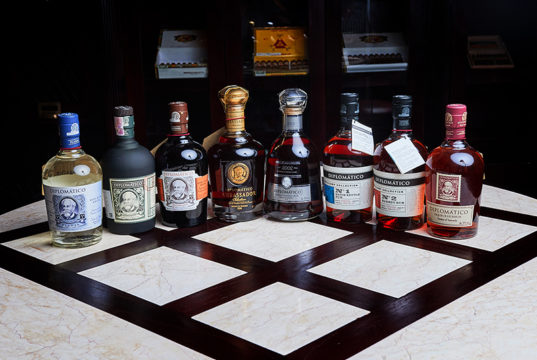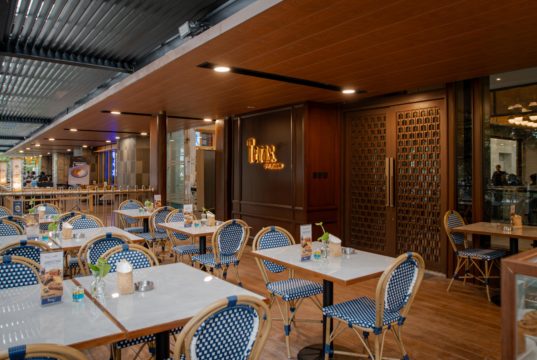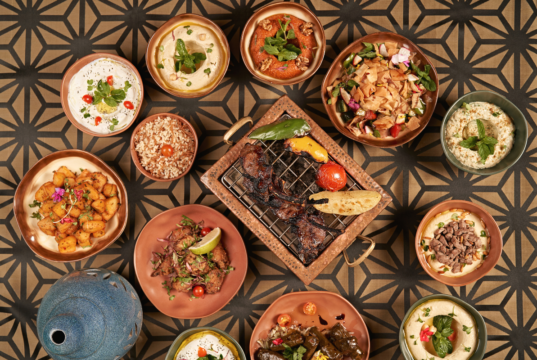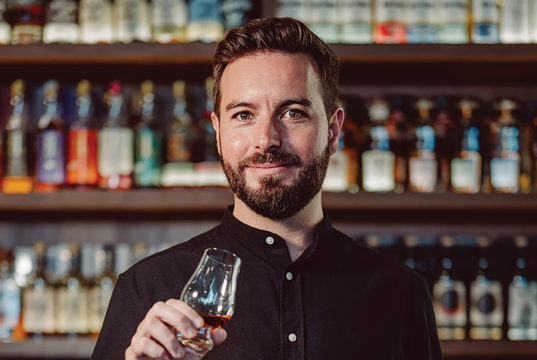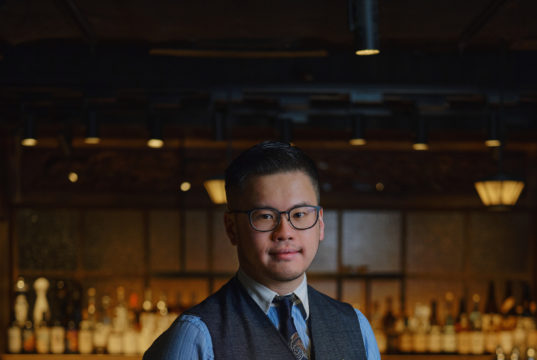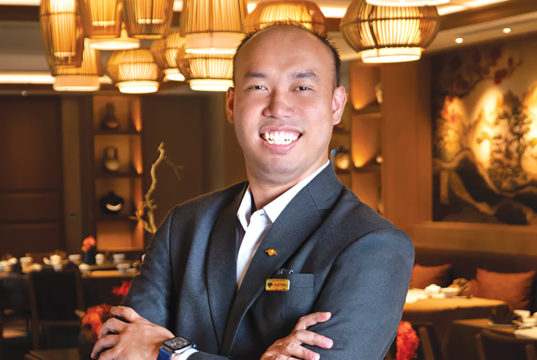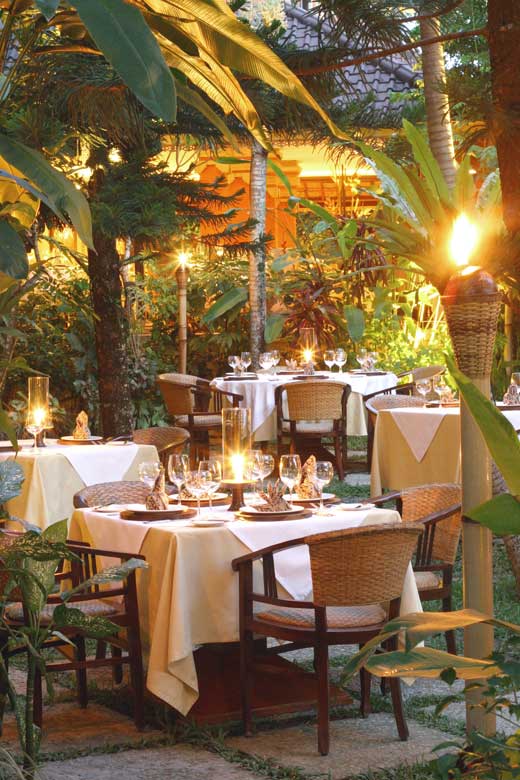At The Top Of His Game
His unique style of presentation through thoughtfully conceptualised degustation menus quickly gained a loyal following, elevating the fluent French speaker to epicurean stardom. Notable accolades include recognition by the prestigious Tradition et Qualité as a member of Les Grandes Tables du Monde (The Grand Tables of the World) and numerous inclusions within the internationally renowned San Pellegrino Guide.
Mozaic’s addition to the exclusive Miele Guide solidified his culinary acumen and with a best-selling cookbook, personal line of signature products and the popular beachfront franchise that bears the Mozaic name, jet setters from around the world make sure to add having dinner within Mozaic’s enchanting garden to the top of their Bali itinerary.
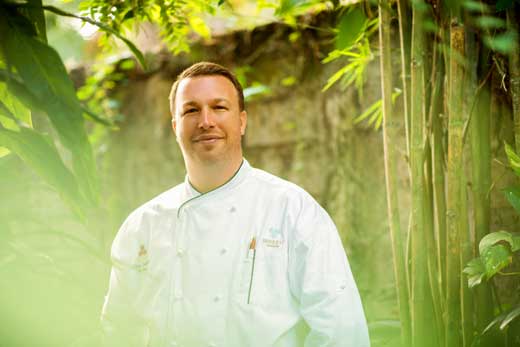
Q: Congratulations on your recent nomination as Best Restaurateur of the Year 2015. How does it feel right now having been recognized by the prestigious World Gourmet Summit’s AOE as one of the best restaurateurs in the region?
A: It’s definitely an honour. It actually means that I’ve done some things right. I will be judged by not only key industry decision makers but also the public. It’s a humbling experience. I’ve worked hard at trying to establish Bali as a culinary destination, and the fact that more chefs from Bali are receiving awards lately means a lot to me too.
Q: How did you come to create Mozaic after having previously worked in France and the USA?
A: The reason I wanted to come to Asia was to learn about Asian ingredients and unlock the secrets of how to use them.
When I decided to open Mozaic, I’d been working in Bali for four years and was getting bored of cooking standard international cuisine and what others wanted me to cook. I also had a burning desire to open my own fine-dining restaurant in Bali.
Q: After the groundbreaking success of Mozaic, what was the concept of Mozaic Beach Club and what sets it apart from Mozaic?
A: The concept is relaxed, fun yet chic! You can choose to dine in the evenings in the Dining Room overlooking the Indian Ocean, or hangout the whole day by the pool and lounge. DJs spin every day too.
The food concept at Mozaic Beachclub is an accessible version of the Mozaic cuisine, which I wanted to share with more people. The quality of food would be what you expect from the Mozaic brand but at very affordable prices.
Unlike Mozaic, at the Beachclub you can choose to have tapas, a la carte and bistro menus in the Lounge. In the Dining Room, there are dishes to share as well as a la carte. Lately also, the beachclub is the chosen venue for music events and celebrations, like the Yak Awards and The Junction Party.
Q: What are some of the core philosophies needed in running a successful fine-dining restaurant such as Mozaic?
A: Hard work, patience and sticking to the vision.
Q: In your personal opinion, how big of an impact has French cuisine played in Bali’s fine-dining scene?
A: French cuisine along with Chinese cuisine are the two most dominant cuisines in the world. They have both played a very important role in setting high standards for fine dining – Chinese for Asian food and French for Western food, but as times get more and more modern, techniques are cross pollinating!
Very few chefs create new techniques. Most of us, like myself, follow what has been created by our predecessors and these techniques are the key to our success.
Q: Conversely, how have you refined your take on French cuisine since you first arrived in Bali up to now, as you are very well-known for your own unique type of cuisine?
A: I am very influenced by local ingredients. I continuously try to learn about new techniques, experiment and implement them on my menu, so you can say that Mozaic’s cuisine is Modern French using the Balinese Terroir.
As more new techniques are developed, more ideas will be born. But at the same time, I do come back to my roots every once in a while to remember the basics.
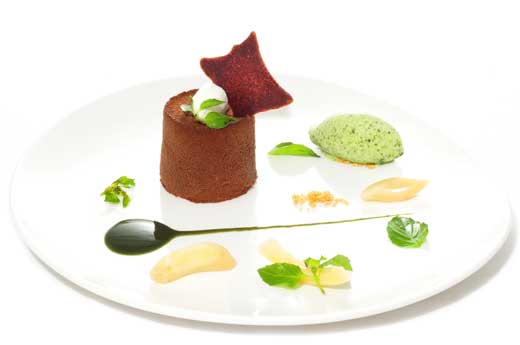
Q: Do you sometimes find challenges in integrating mostly Balinese flavours in modern French cuisines? For example, are there certain ingredients that simply cannot be substituted with anything locally?
A: Of course there are always challenges. Mozaic’s cuisine is best defined as cuisine du marché (market cuisine), based on the ingredients in season in my environment. Without a continuous flow of seasonal or new ingredients I cannot create. When ingredients are hard to come by, certain dishes might disappear, then might or might not come back in a different form, changed or simply evolved. It depends on the market, my techniques and what I like (my palate) at the time the dish reappears.
There certainly are certain western or French ingredients that cannot be substituted, such as cheese, foie gras and others. But by being creative it is possible to rely only on local ingredients. Many chefs, including myself, are doing great cuisine while using only, or a majority of, local ingredients. One just has to open your eyes to the wealth of the Indonesian flora.
Q: You’ve worked in a number of renowned restaurants in numerous parts of the world. How are guests from each country different in terms of enjoying fine-dining restaurants?
A: I’m not too sure. The truth is that I don’t cook differently for different people. I have my style of cooking and I share that style and passion with my guests. Those who like it come and those who don’t, don’t.
Q: How would you explain the core elements of French delicacies to someone with no culinary background?
A: I would bring them to a French restaurant and buy them an amazing meal!!! Words are no substitute for any delicacy!!!
Q: What is the single most complicated cuisine you have ever created?
A: Any cuisine which is complimented is usually not worth mentioning. Great cuisine is simple. It lets the main ingredient shine through and everything on the plate compliments that item. If a dish is complicated, it is by definition not a great dish.
However, if I am forced to answer the question, then I would say that the item which has been the most complicated for me technically would be working with Indonesian kluwek. It took me almost one year to master the ingredient. That is the longest that any ingredient has taken me, yet kluwek is a modest ingredient.
Q: What advice can you offer to brooding chefs/restaurateurs trying to make their mark in Asia’s highly competitive culinary scene?
A: In Asia, try new tastes; integrate them in your dishes using the techniques you have acquired. Roam around the streets and try the street stall offerings, they are gold mines of inspiration.
Make sure that you go into this career because it is a passion and a dream of yours. There is no glory in being a chef/restaurateur. It requires a lot of hard work, sacrifice, time away from your family, working when others are having fun, celebrating, etc… So passion is an absolute requirement. Without it, it is difficult to warrant all the sacrifices.


